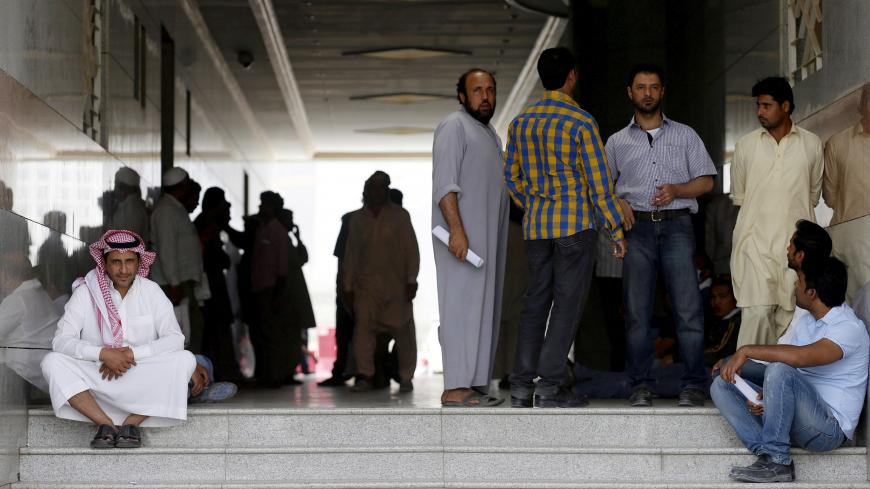The Kuwaiti government has announced that from March 17 to June 17 illegal migrants, such as those who have overstayed their visas, can rectify their status and legalise their stay. This grace period was allegedly designed to help approximately 120,000 illegal immigrants avoid future persecution by the government. Under this scheme, illegal migrants would have to pay a fine of KD 2 (€6.08) each day they were illegal residents, up to a maximum of KD 600 (€1826.45) to regularise their status. Alternatively, they could choose to leave the country without paying a fine. Once the grace period is over, the government will return to disregarding their human rights by persecuting illegal immigrants and resorting to mass deportation.
This scheme is supposedly part of Kuwait’s humanitarian agenda to help illegal immigrants seek legal protection, however, when researching Kuwait’s wider socio-economic and political context, it becomes evident that it promotes an anti-illegal immigrant agenda. It was first announced on January 18 before it was rescinded the following day and replaced with an announcement by the Ministry of Interior (MOI) that they would instead resume the mass deportation of illegal residents. Given the scheme was promptly replaced by more restrictive measures, it reveals that the government would rather deport illegal residents than regularise them. This demonstrates that the true intentions behind the original scheme were not humanitarian-based. The scheme was then reconfirmed in March and is currently underway. This reconfirmation of the same scheme shows that the true purpose of it remains to restrict the number of illegal residents in Kuwait.
In addition to the false narrative of this scheme, the most significant issue is the sum of the fine. Given that around 60% of migrant workers in Kuwait earn less than KD 125 (€374) per month, they would need to save up to 5 months’ worth of wages to pay the maximum fine. As this scheme has been announced as part of a humanitarian effort to help these illegal migrant workers, expecting them to have such a large sum saved up is antithetical to their fake human rights agenda. This is especially evident considering that the alternative is that illegal migrants can exit Kuwait without needing to pay any fines. This begs the question of whether this scheme has been done with the migrant’s best interest in mind or, most likely, whether it is attempting to legally reduce the number of illegal migrants by facilitating their coerced, yet under legal terms still voluntary, exit from the country.
After this grace period, if an illegal migrant has neither paid the fine nor left Kuwait of their own volition, they will be deported and potentially blacklisted. This confirms that this Amnesty Scheme is part of a larger mass deportation scheme and ultimately undermines the migrants’ human rights. This is detrimental to the human rights landscape in Kuwait because it highlights the use of false pretences to further an anti-illegal migrant agenda. The attempt to strengthen the “integrity of Kuwait’s legal system” in this way is in bad faith and contrary to a humanitarian agenda. Prying on already vulnerable and underpaid migrant workers by giving them a false feeling of choice undermines their human rights and only puts them in a more precarious situation.
This scheme furthers inequalities because those unable to pay the fines will either have to uproot their lives again and leave or stay and risk persecution. Given that some may not find employment opportunities in their home country, they may be forced to stay illegally and risk persecution due to a lack of viable options. Even those able to pay the fines may become indebted or be financially unstable because they spent their savings on the fines. Furthermore, the Kafala system in Kuwait means that the migrant workers’ rights remain in the hands of the employers, which this scheme does not address. As a result, this power imbalance remains the same and the systemic issues are not resolved.
Overall, the government of Kuwait’s humanitarian pretence of protecting individuals by persuading illegal immigrants to either legalise their status or leave is in stark contrast with the reality of the scheme. The high fines compared to the wages remain the biggest obstacle for illegal migrants to legalise their status, and thus will likely create more economic disparity. This is not to say that such a scheme cannot benefit illegal residents, however, Kuwait would have to heavily revise it to ensure that it truly supports the human rights of the illegal workers.

